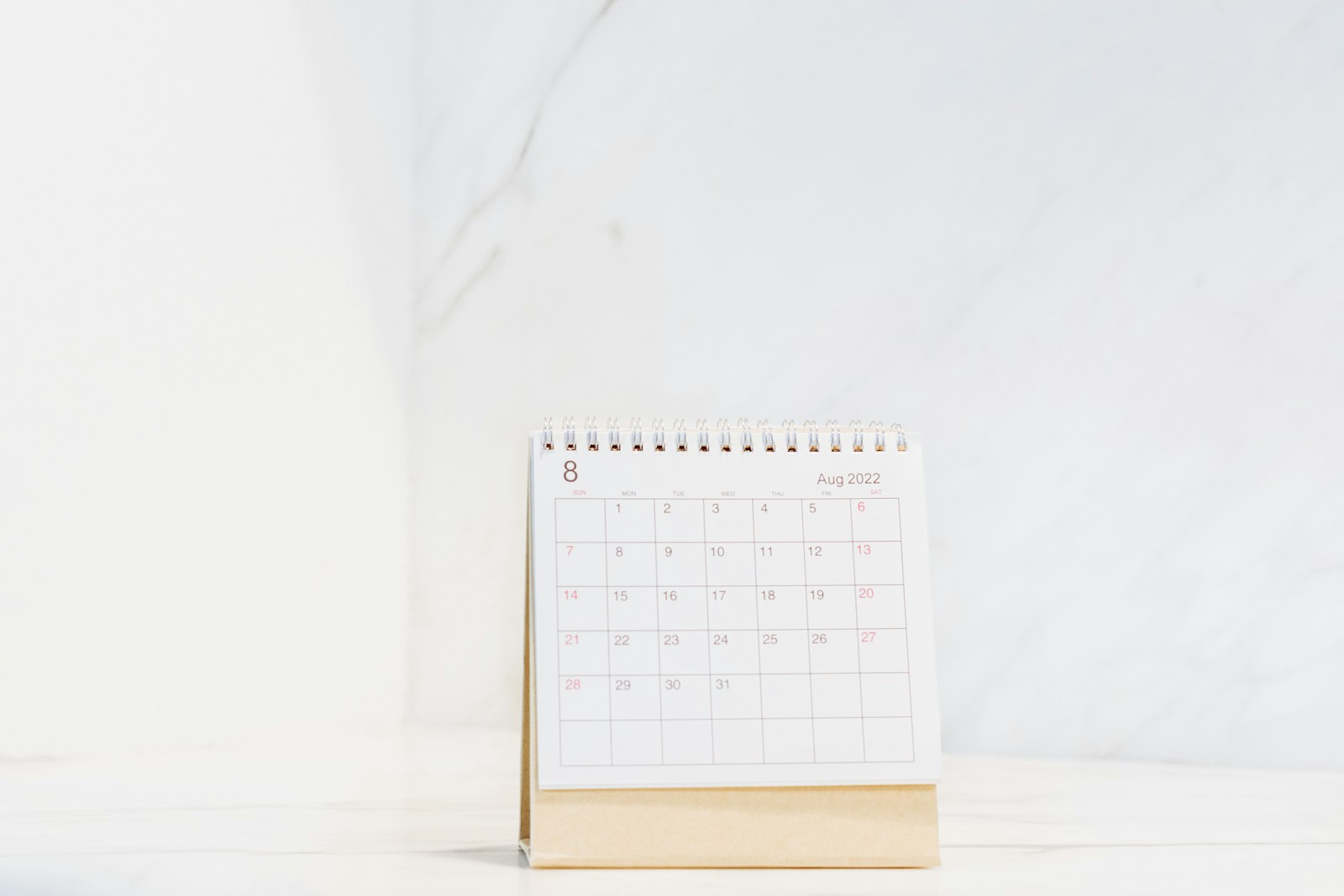
日历
rì lì

calendar
The Chinese word for 'calendar' is '日历'. It is a system to organize time by days, weeks, and months, for purposes such as keeping track of events, appointments, and special dates. In China, there are two main systems: the traditional Chinese lunar calendar and the Western (Gregorian) calendar.
Example sentences using: 日历
我需要查看今年的日历。
Wǒ xūyào chákàn jīnnián de rìlì.

I need to check this year's calendar.
The speaker wants to look at the calendar for this year.
日历上的每一天都重要。
Rìlì shàng de měi yītiān dū zhòngyào.

Every day on the calendar is important.
The speaker is stating that every day marked on the calendar is significant.
这是我在日历上标记的日期。
Zhè shì wǒ zài rìlì shàng biāojì de rìqī.

This is the date I marked on the calendar.
The speaker had previously marked a specific date on his/her calendar.
请把日历翻到下个月。
Qǐng bǎ rìlì fān dào xià gè yuè.

Please turn the calendar to next month.
The speaker is asking someone to flip the physical calendar to the next month.
日历可以帮助我们安排时间。
Rìlì kěyǐ bāngzhù wǒmen ānpái shíjiān.

Calendars can help us schedule our time.
The speaker is suggesting that calendars are useful tools for managing time.
这是我用日历计划的行程。
Zhè shì wǒ yòng rìlì jìhuà de xíngchéng.

This is the itinerary I planned using the calendar.
The speaker is referring to a schedule that was laid out on a calendar.
你有没有看过这张日历?
Nǐ yǒu méiyǒu kàn guò zhè zhāng rìlì?

Have you ever seen this calendar?
The speaker is asking if someone else has seen a particular calendar.
我喜欢这个日历的设计。
Wǒ xǐhuan zhège rìlì de shèjì.

I like the design of this calendar.
The speaker is expressing appreciation for the design of a specific calendar.
日历上的假期让我很開心。
Rìlì shàng de jiàqī ràng wǒ hěn kāixīn.

The holidays on the calendar make me happy.
The speaker is expressing joy about the holidays marked on the calendar.
请在日历上标记好会议日期。
Qǐng zài rìlì shàng biāojì hǎo huìyì rìqī.

Please mark the meeting date on the calendar.
The speaker is instructing someone to mark a specific date for a meeting on the calendar.